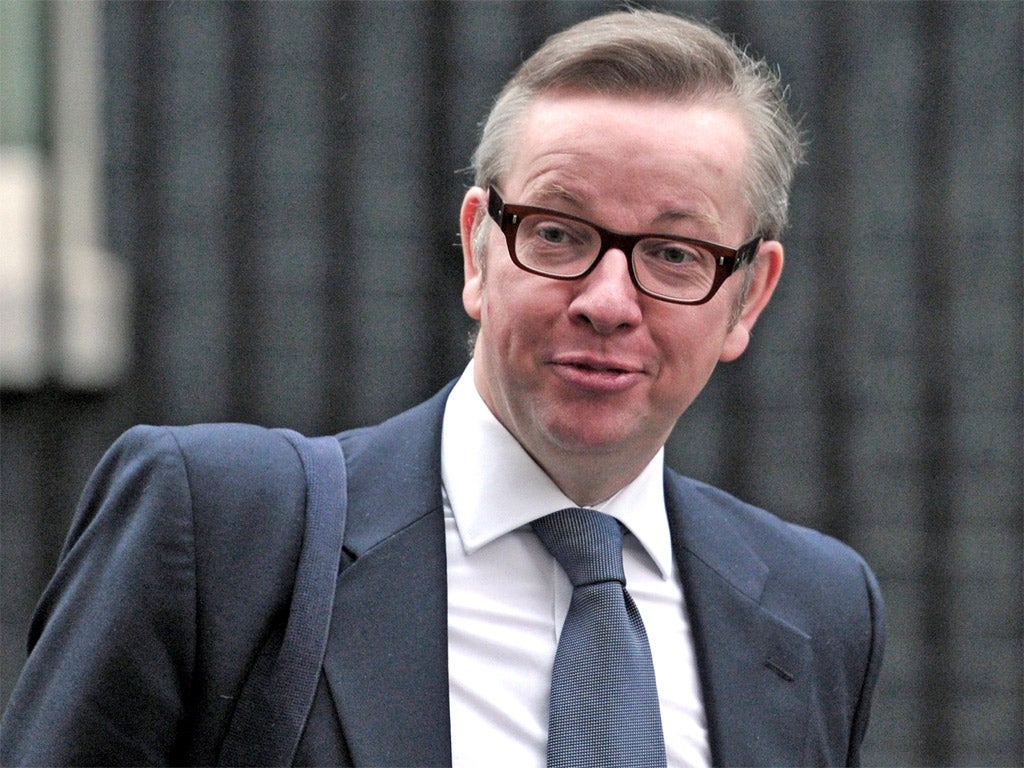Schools face cuts to pay for £1bn academies overspend
Funds for struggling schools slashed, report reveals

Funding for struggling schools has been slashed to cover a £1bn overspend in the academies programme, a report reveals today.
Spending on a range of education programmes – including improving under-performing schools – has been cut to provide unplanned extra funding for academies, according to the National Audit Office, a public spending watchdog. Leaders of the teaching unions reacted with anger last night, describing the overspending as "appalling" at a time when non-academy schools were having to tighten their belts.
"There appears to be no limit to the amount of money this Government is prepared to pour into creating academies," said Mary Bousted, general secretary of the Association of Teachers and Lecturers. "When money in the UK is so tight, this unscheduled spending of taxpayers' money is appalling."
Academy schools, which are funded directly from Whitehall and are independent of local authority control, were introduced under Labour but have been heavily pushed by Michael Gove. The Education Secretary has said he anticipates most schools becoming academies, although critics claim they are insufficiently accountable and hand too much power to school sponsors.
Margaret Hodge, the Labour MP who chairs the Commons Public Accounts Committee, said: "Taxpayers have the right to expect a more considered and controlled approach to public spending than the department has so far displayed."
Today's report revealed the Government spent £8.3bn on the academies programme in the two years up to April 2012 – £1bn of which had been above budget.
As a result, ministers have had to slash a total of £350m from other education services – cutting £95m from the school improvement programme aimed at raising standards and taking £105m from contingency reserves.
In addition, this year they have reduced by £100m the amount set aside for 16- to 19-year-olds to stay on at school or college and a similar amount earmarked for intervening to improve standards in under-performing schools.
The Department for Education justified the budget cuts by saying the academies programme was now its key means of improving standards.
The report also reveals that six senior figures in the academies movement earn more than £200,000 a year and that heads of academies, on average, earn £6,600 more than those of maintained local authority schools. The number of civil servants seconded to the project has also more than doubled, to 280.
Since the election in 2010, the numbers of schools becoming academies has soared by 1,037 per cent – from 210 to 2,309 by this September. This includes 48 per cent of all secondary schools and five per cent of primary schools. As a result, the programme is now swallowing up 15 per cent of the entire schools budget – compared with just five per cent in 2010.
Today's report says that most of the schools transferring up until now had been ranked as "good" or "outstanding" by Ofsted, the education standards watchdog, but a growing number now were only "satisfactory" – a category now replaced by "requires improvement". As a result, there was a risk they may not be so expert at controlling their own finances.
Amyas Morse, head of the NAO, said: "A tenfold increase in the number of academies since May 2010 is a significant achievement. However, the department wasn't sufficiently prepared for the financial implications of such a rapid expansion or for the challenge of overseeing and monitoring such a large number of academies."
The DfE mounted a robust defence of the extra spending. "We make no apology for the fact that more schools than even we had imagined have opted to convert [to academies], and no apology for spending money on a programme that is proven to drive up standards and make long-term school improvements," said a spokesman.
"We want as many schools as possible to take advantage of the significant benefits that academy status brings – because it means more and more schools run by great heads and teachers, not local authority or Whitehall bureaucrats, and more and more children getting a first-class education."
He added that the cost of converting a school had fallen by 53 per cent in two years and would be cut further.
By numbers
£8.3bn Cost of the academies project in first two years of the Coalition, £1bn over budget
2,309 The number of academies by September 2012 – an increase of 1,037% since the election
15% Proportion of schools budget earmarked for academies, up from 5% in 2010
48% Proportion of secondary schools that are now academies
133% Increase in number of civil servants working on academies programme (from 120 in 2010-11 to 280 in 2011-12)
Join our commenting forum
Join thought-provoking conversations, follow other Independent readers and see their replies
Comments
Bookmark popover
Removed from bookmarks